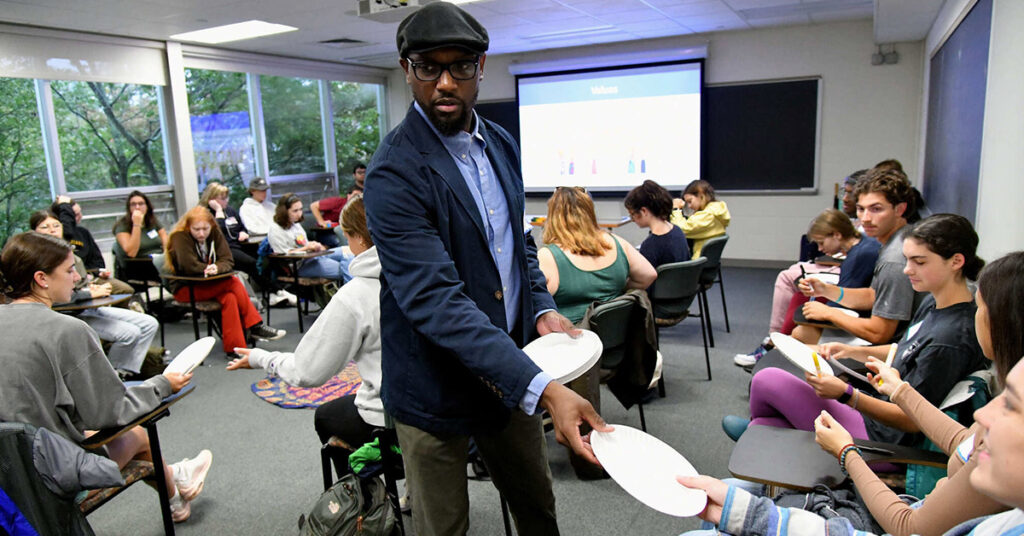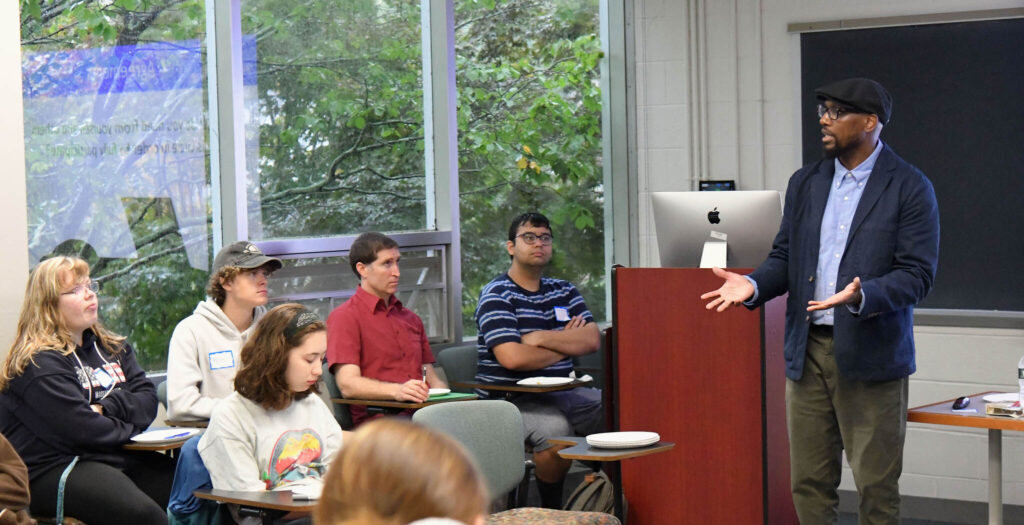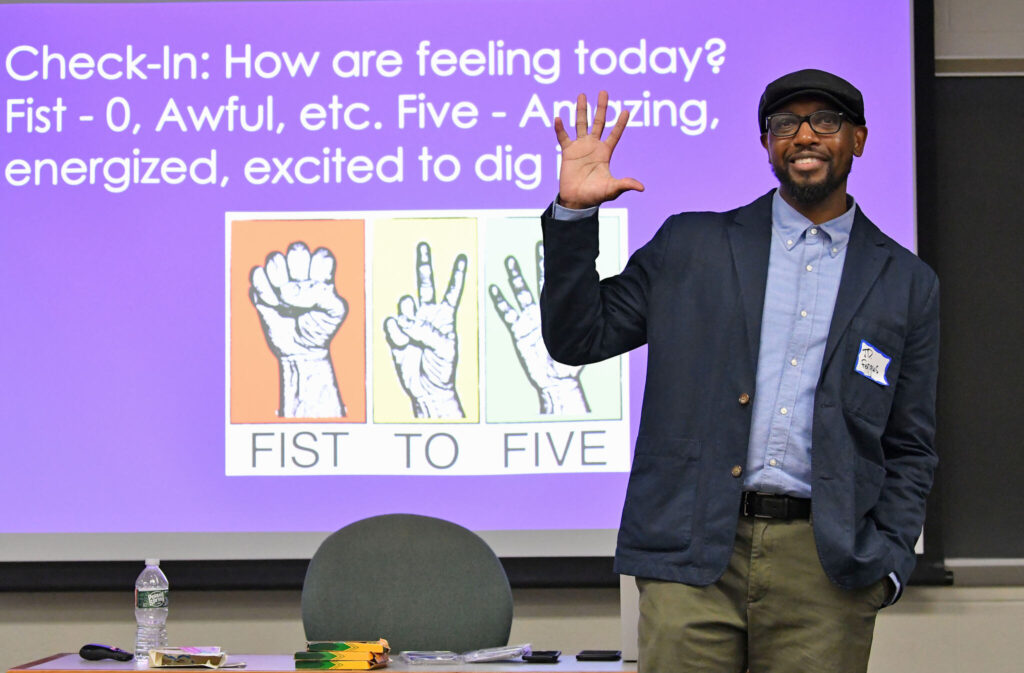Fostering connections for a positive school environment
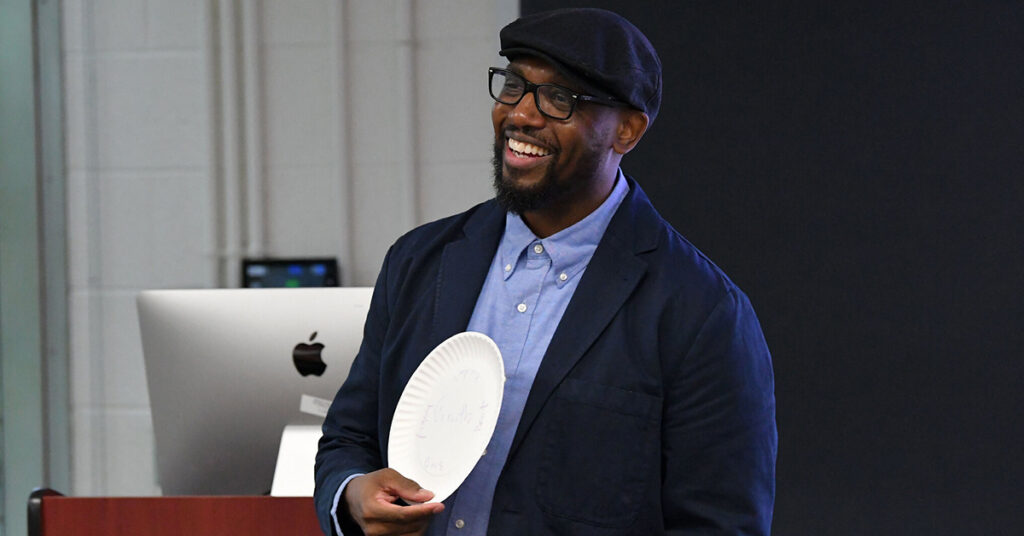
Educator and restorative justice expert J D. Fergus ’01 shares insights with students
On a September morning in Professor of Education Scott Gelber’s “Education and Equality in the U.S” course, J D. Fergus ’01 demonstrated to Wheaton students ways to create a positive and welcoming atmosphere in the classroom.
He distributed paper plates and asked each student to write down an important value to them, and then team up with partners to share stories behind what they wrote. He also ensured everyone’s voice was heard during a follow-up conversation after his lecture, and went out of his way to connect individually with students.
These simple exercises, which help enhance interpersonal relationships, demonstrate what restorative justice in an elementary and secondary classroom setting ideally should look like, according to Fergus, who serves as a network managing director of equity and restorative practices at Phoenix Charter Academy Network and lead trainer at Center for Restorative Justice at Suffolk University in Boston.
Gelber invited Fergus to his course to give his students a deeper understanding of restorative justice in practice. One goal of this approach is resolving conflicts in schools without relying on the traditional tools of suspension and expulsion, which often disproportionately affect students of color.
“Wheaton students are interested in learning about alternative approaches to building supportive cultures within school and I thought they would appreciate hearing from a graduate who is out there doing this important work,” Gelber said.
Fergus, who majored in history at Wheaton, received his master’s degree in secondary education from Tufts University before launching a career as a teacher. He taught in multiple schools in the Boston area, including Fenway High School (where he attended high school) and Prospect Hill Academy Charter School.
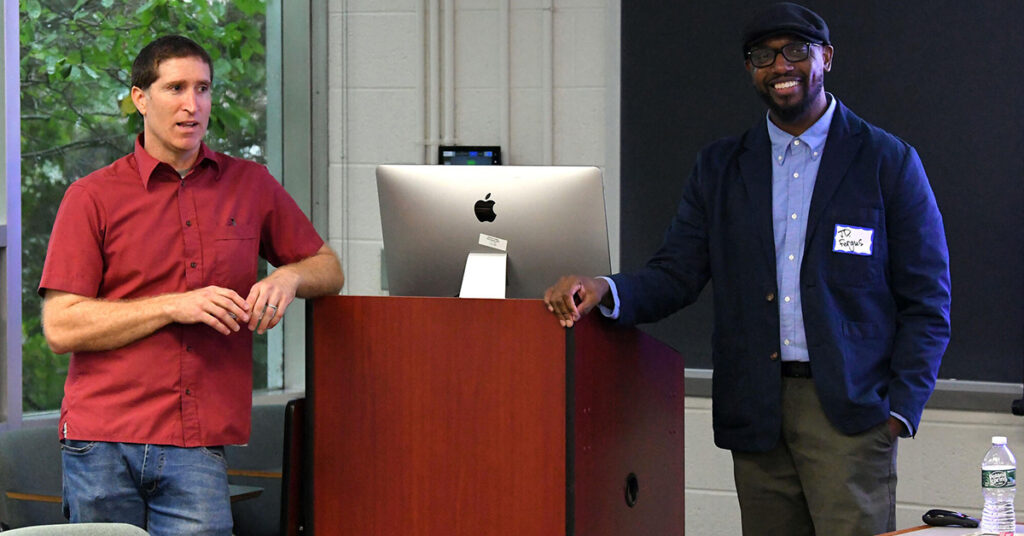
“I had learned to be very rigid going into education. I think because of that, I relied on school culture and rules for classroom management. But restorative justice really helped me figure out how to balance control and influence,” Fergus said in an interview after the class.
Ways of influencing the culture of a classroom include establishing with students early on what they—and the teacher—need to succeed. For example, the class could meet in a circle and address the question, “What do you need to be your best self?,” which would form the basis of community guidelines for the academic year.
“It’s also important to be authentic as a teacher. Young people pick up on authenticity. So with them, I can be my playful and curious self. And we can talk about what’s important to you and me. These agreements can be kept and renegotiated,” he said.
Fergus first took on the role of restorative justice coordinator at Prospect Hill Academy Charter School to help educators apply practices like these in the classroom—and has since worked in restorative justice for various schools and programs.
He works with students at risk of suspension or expulsion, or in disruptive conflict with others, to mend their relationships through honesty and accountability. Where many see conflict and become concerned, Fergus says he instead sees an opportunity to bring individuals and groups together to get to the root of problems and find ways to heal.
Building social-emotional learning and other interpersonal skills is especially crucial as students readjust to in-person learning following the isolation of the COVID-19 pandemic, he added. “We did lose our social skills. Folks find it hard to trust and talk, and process nervousness, fear and conflict. We’re finding a way to heal together.”
After Fergus shared the details of his career and restorative justice practices in Gelber’s class, he asked each student to share their primary takeaway from the conversation. Several students brought up how restorative justice could have improved the cultures of classrooms in their past and the need to address the mental well-being of students.
“I thought about how social justice could be applied to my own high school, and how schools I know in my own hometown could benefit,” said Chloe Leetch ’25, who is majoring in history.
The experience of nurturing a positive and welcoming classroom and helping students resolve conflicts is the most gratifying part of his job, Fergus said.
“The human side of my work brings me joy; it’s a great feeling that keeps me motivated,” he said.

